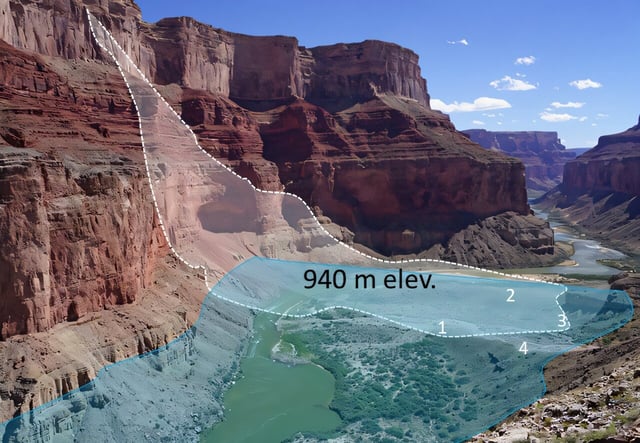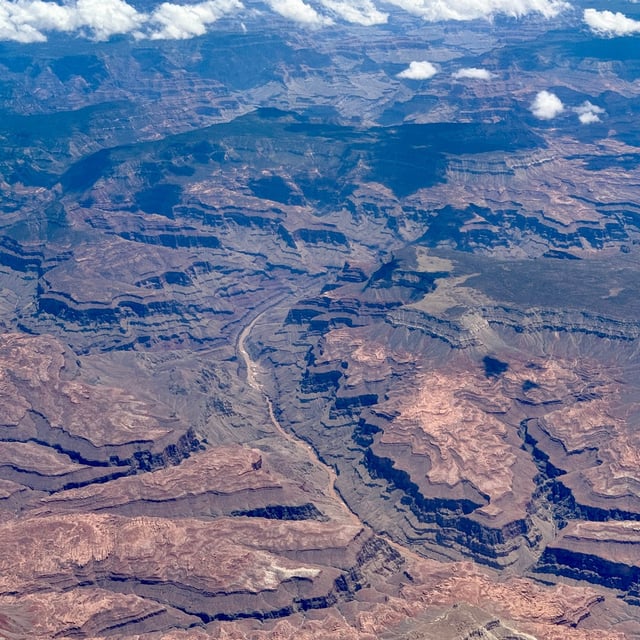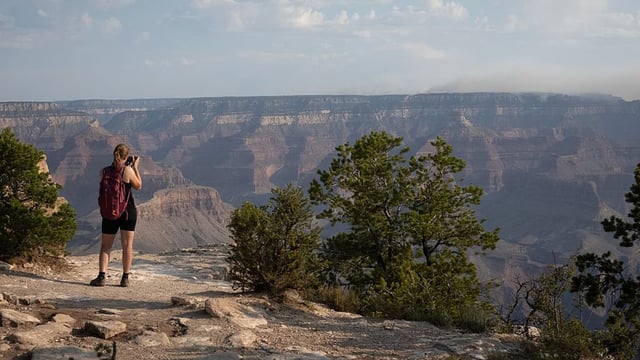Overview
- A Geology paper published in July 2025 unites radiometric, seismic and sedimentary data to link a 56,000-year-old meteorite impact to a massive landslide that blocked the Colorado River in the Grand Canyon.
- Driftwood and sediment samples from caves up to 940 m above river level yielded consistent ages around 55,600 years, matching updated Meteor Crater impact dates of 53,000–63,000 years.
- Seismic modeling by David Kring indicates the impact would have generated a magnitude 5.4 quake locally, with a shock wave of about M3.5 reaching the Grand Canyon and capable of destabilizing canyon cliffs.
- Field studies in Nankoweap Canyon identify chaotic landslide deposits capped by rounded cobbles, suggesting the natural dam formed and was eroded within roughly 1,000 years.
- Authors highlight the convergence of independent dating methods and geological evidence for a causal link while acknowledging that spontaneous rockfalls or local earthquakes remain possible triggers.


